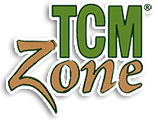Exploring the Role of Gut Health in Traditional Chinese Medicine: Advanced Perspectives and Treatment Strategies

By Xiyuan “Alex” Qiu, L.Ac.
In recent years, there has been growing recognition of the crucial role that gut health plays in overall well-being, with research highlighting its impact on immunity, mood, metabolism, and more. Traditional Chinese Medicine (TCM) has long emphasized the importance of the digestive system in maintaining health and preventing disease, viewing the gut as the root of vitality and the foundation of wellness. Advanced practitioners of acupuncture and herbal medicine are at the forefront of exploring the intricate connections between gut health and TCM principles, developing innovative treatment strategies to address a wide range of gastrointestinal issues. In this advanced exploration, we delve into the role of gut health in TCM, offering insights and treatment strategies for advanced practitioners.
Understanding the Gut in Traditional Chinese Medicine
In TCM, the digestive system is viewed through the lens of the Spleen and Stomach organs, which are responsible for the transformation and transportation of food and fluids, as well as the production of vital substances such as qi, blood, and body fluids. According to TCM theory, the Spleen is particularly vulnerable to dampness and stagnation, which can impair its function and lead to a variety of digestive imbalances.
Common Gut Health Issues and TCM Patterns
- Spleen Qi Deficiency: This pattern is characterized by fatigue, bloating, loose stools, and poor appetite. Treatment may involve tonifying the Spleen with herbs such as Ginseng (Ren Shen) and Atractylodes (Bai Zhu), as well as acupuncture points like Stomach 36 (Zu San Li) and Spleen 6 (San Yin Jiao) (Maciocia, 2015).
- Liver Qi Stagnation: This pattern manifests as abdominal distension, belching, and alternating diarrhea and constipation. Treatment may focus on regulating the Liver Qi with herbs like Bupleurum (Chai Hu) and Peppermint (Bo He), as well as acupuncture points such as Liver 3 (Tai Chong) and Pericardium 6 (Nei Guan) (Maciocia, 2015).
- Damp-Heat Accumulation: This pattern presents with symptoms such as abdominal pain, diarrhea with foul-smelling stools, and a sensation of heaviness in the abdomen. Treatment may involve clearing damp-heat with herbs like Plantain Seed (Che Qian Zi) and Coptis (Huang Lian), as well as acupuncture points like Large Intestine 11 (Qu Chi) and Spleen 9 (Yin Ling Quan) (Bensky et al., 2015).
- Food Stagnation: This pattern arises from overeating or consuming greasy or rich foods, leading to symptoms such as indigestion, nausea, and a feeling of fullness in the abdomen. Treatment may focus on resolving food stagnation with herbs like Hawthorn (Shan Zha) and Tangerine Peel (Chen Pi), as well as acupuncture points such as Stomach 25 (Tian Shu) and Ren 12 (Zhong Wan) (Bensky et al., 2015).
- Damp-Cold Invasion: This pattern is characterized by abdominal pain, diarrhea with undigested food, and a preference for warmth. Treatment may involve dispelling damp-cold with herbs like Ginger (Sheng Jiang) and Cinnamon (Gui Zhi), as well as acupuncture points such as Spleen 3 (Tai Bai) and Stomach 37 (Shang Ju Xu) (Maciocia, 2015).
Advanced Treatment Strategies in TCM
In addition to herbal medicine and acupuncture, advanced practitioners may incorporate other modalities such as dietary therapy, lifestyle modifications, and mind-body practices to support gut health and promote overall well-being. Dietary recommendations may include consuming warm, easily digestible foods, avoiding raw or cold foods, and incorporating probiotic-rich foods such as fermented vegetables and yogurt.
Case Studies: Applying Advanced Strategies in Clinical Practice
 Case Study 1: Irritable Bowel Syndrome (IBS)
Case Study 1: Irritable Bowel Syndrome (IBS)
A patient presents with symptoms of abdominal pain, bloating, and alternating diarrhea and constipation consistent with IBS. The practitioner conducts a thorough assessment and identifies a pattern of Liver Qi Stagnation with Spleen Qi Deficiency. Treatment involves a combination of acupuncture sessions targeting Liver and Spleen meridians, along with a customized herbal formula containing herbs to soothe Liver Qi and tonify Spleen Qi.
Case Study 2: Gastric Ulcers
A patient complains of epigastric pain, acid reflux, and nausea suggestive of gastric ulcers. Upon examination, the practitioner discerns a pattern of Damp-Heat Accumulation in the Stomach. Treatment consists of herbal formulas to clear heat and dampness, along with acupuncture points to harmonize the Stomach and regulate digestion.
Conclusion: Advancing Gut Health with TCM
In conclusion, the principles and practices of TCM offer invaluable insights into the complex interplay between gut health and overall well-being. Advanced practitioners of acupuncture and herbal medicine play a vital role in applying these principles to develop personalized treatment strategies for a wide range of gastrointestinal issues. By addressing the root causes of digestive imbalances and restoring harmony to the body, we can optimize gut health and promote holistic wellness in our patients.
**References:**
– Bensky, D., Clavey, S., & Stoger, E. (2015). Chinese Herbal Medicine: Materia Medica (3rd ed.). Eastland Press.
– Maciocia, G. (2015). The Foundations of Chinese Medicine: A Comprehensive Text (3rd ed.). Churchill Livingstone.



 Case Study 1: Irritable Bowel Syndrome (IBS)
Case Study 1: Irritable Bowel Syndrome (IBS)